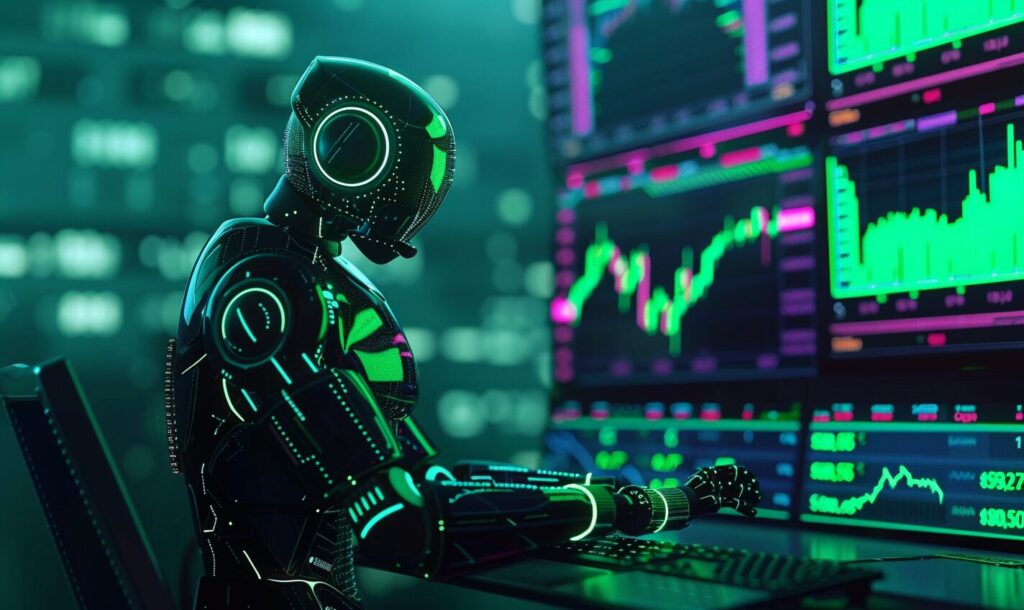Imagine a world where machines can predict your next move, optimize energy usage and diagnose diseases. The discourse about Machine Learning vs AI has taken over digital spaces, and rightfully so. In recent years, automation has driven society to the future.
It is no longer just a buzzword — it’s a reality reshaping industries, enhancing productivity and altering people’s daily lives. From self-driving cars to automated customer service, the significance of automation in the 21st century is palpable.
This article delves deep into the engines powering this transformative trend. You will explore how each technology uniquely shapes the future of automation, offering insights for tech enthusiasts and industry leaders.
What is automation?
Automation is the use of technology to perform tasks without human intervention. It’s the backbone of modern industry, streamlining processes and enhancing efficiency.
The roots of automation trace back to the Industrial Revolution, when machinery replaced manual labor. Over time, advancements like assembly lines and computer programming expanded automation’s reach.
Fast forward to today, and people have entered a new era. With the advent of Machine Learning and AI, automation is evolving to handle even more complex tasks, including data analysis and decision-making.
Understanding Machine Learning
Machine Learning (ML) is a subset of Artificial Intelligence that enables computers to learn from data. Unlike traditional methods, ML allows machines to improve performance without a third party explicitly programming it.
Key features and applications in automation include the following:
- Data analysis: ML can sift through large data sets and identify patterns or anomalies.
- Predictive maintenance: It can forecast equipment failures, reducing downtime.
- Process optimization: ML algorithms can enhance supply chain logistics or energy consumption.
In the health care industry, algorithms revolutionize how doctors and nurses operate. These algorithms can analyze medical records and diagnostic tests to predict patient risks or assist in making more accurate diagnoses.
The retail sector has also embraced ML to enhance the shopping experience. Automated recommendation systems analyze your past purchases and browsing behavior to suggest products you might like.
ML-powered automation also significantly impacts manufacturing processes. Robots with ML algorithms can assemble products with high precision and efficiency. This automation minimizes human error and speeds up the production line, making businesses more competitive.
Unveiling AI
Artificial Intelligence (AI) is the broader concept of creating machines capable of performing tasks that require human intelligence. It encompasses everything from problem-solving to understanding natural language.
While ML is a subset of AI focused on data analysis and learning from it, AI has a broader scope. It can involve rule-based systems, robotics and emotional intelligence, aspects ML doesn’t inherently cover.
Applications of AI in different industries include the following:
- Voice assistants: Devices like Alexa and Siri use AI to understand and respond to human speech.
- Self-driving cars: AI algorithms interpret sensor data to navigate and make decisions.
- Customer service bots: These bots use AI to understand customer queries and offer solutions.
As AI technologies continue to advance, there’s a growing need for public education and awareness. Demystifying AI is vital for building trust and fostering an environment where people can make informed decisions about its use. Whether through transparent algorithms or educational outreach, taking steps to unveil the workings of AI will be a significant focus in the years to come.
Machine Learning in Automation
ML algorithms are the brain behind automation. They analyze data, make predictions and execute tasks while constantly learning to improve performance.
In finance, ML is crucial for algorithmic trading and assessing investment risks. Health care is another industry where ML shines, particularly in predictive analytics to inform patient treatment plans. Meanwhile, these algorithms are busy analyzing consumer behavior in marketing to fine-tune advertising strategies.
One significant trend is the push for “Explainable AI,” where algorithms can clarify their decision-making process. Real-time data analysis is also on the rise, allowing instantaneous decision-making that adapts to rapidly changing circumstances. Moreover, you can expect a future where human skills and machine automation work harmoniously, optimizing efficiency and effectiveness.
AI in Automation
AI takes automation to the next level by making complex decisions based on many factors. Unlike traditional systems, it can analyze data from various sources, consider multiple variables and make informed choices without human intervention.
The transportation industry is leveraging AI to develop self-driving cars and smart logistics. In health care, organizations use it for personalized treatment plans and even in surgical robots. E-commerce is another big player, using AI for inventory management and customized marketing.
As you look to the future, you can expect AI to become more integrated into your daily life through innovative home automation systems or advanced health care monitoring. Additionally, there’s a growing focus on ethical AI practices, ensuring organizations use these technologies responsibly.
Ethical Considerations
For ML, one of the main ethical issues is data privacy. Because these algorithms often need extensive data sets to function, there are concerns about how they collect and use this data. AI raises ethical questions around bias, as these systems can inadvertently apply societal biases in the data they learn from.
As automation becomes more prevalent, ethical considerations become increasingly crucial. Ensuring data privacy, eliminating bias and implementing transparent decision-making processes will be vital for trust. The goal is to create systems that perform tasks and do so in a way that’s ethical and just.
Another ethical issue is the potential for job displacement due to automation. Both ML and AI are becoming adept at tasks humans traditionally perform. As these technologies advance, there’s a growing need for discussions about workforce transitions, upskilling opportunities and how societies ensure to distribute the benefits of automation equitably.
Dynamic Future of the Tech Landscape
You’ve explored the definitions, roles and applications of Machine Learning and AI in automation. While ML excels at data analysis and predictive tasks, AI encompasses broader capabilities, including decision-making and natural language processing. Both technologies present ethical challenges, from data privacy to potential bias.
The technological landscape is ever-changing, and the evolution of Machine Learning vs AI exemplifies this dynamism. As these technologies advance, they’ll become even more integral to various industries, reshaping the future of automation in ways you can only imagine.
Recent Stories
Follow Us On
Get the latest tech stories and news in seconds!
Sign up for our newsletter below to receive updates about technology trends














